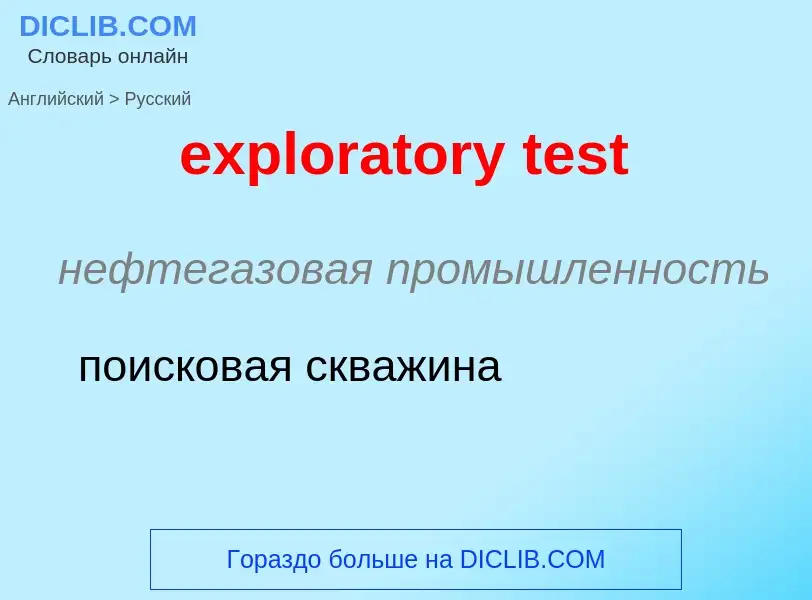Перевод и анализ слов искусственным интеллектом ChatGPT
На этой странице Вы можете получить подробный анализ слова или словосочетания, произведенный с помощью лучшей на сегодняшний день технологии искусственного интеллекта:
- как употребляется слово
- частота употребления
- используется оно чаще в устной или письменной речи
- варианты перевода слова
- примеры употребления (несколько фраз с переводом)
- этимология
exploratory test - перевод на русский
нефтегазовая промышленность
поисковая скважина
[ik'splɔ:rət(ə)ri]
общая лексика
исследовательский
зондирующий
медицина
пробный
нефтегазовая промышленность
разведочный (о скважине)
прилагательное
общая лексика
исследовательский
разведочный
пробный
испытательный
исследующий
медицина
реакция Манту
медицина
непрямая проба Кумбса
медицина
прямая проба Кумбса
медицина
туберкулиновая кожная проба
['testkeis]
общая лексика
задача контрольная
пример контрольный
юриспруденция
дело
имеющее принципиальное значение для разрешения ряда аналогичных дел
дело-прецедент
Определение
Википедия
Exploratory testing is an approach to software testing that is concisely described as simultaneous learning, test design and test execution. Cem Kaner, who coined the term in 1984, defines exploratory testing as "a style of software testing that emphasizes the personal freedom and responsibility of the individual tester to continually optimize the quality of his/her work by treating test-related learning, test design, test execution, and test result interpretation as mutually supportive activities that run in parallel throughout the project."
While the software is being tested, the tester learns things that together with experience and creativity generates new good tests to run. Exploratory testing is often thought of as a black box testing technique. Instead, those who have studied it consider it a test approach that can be applied to any test technique, at any stage in the development process. The key is not the test technique nor the item being tested or reviewed; the key is the cognitive engagement of the tester, and the tester's responsibility for managing his or her time.


![The size of [[induration]] is measured 48–72 hours later. Erythema (redness) should not be measured. The size of [[induration]] is measured 48–72 hours later. Erythema (redness) should not be measured.](https://commons.wikimedia.org/wiki/Special:FilePath/Mantoux test.jpg?width=200)

.png?width=200)

